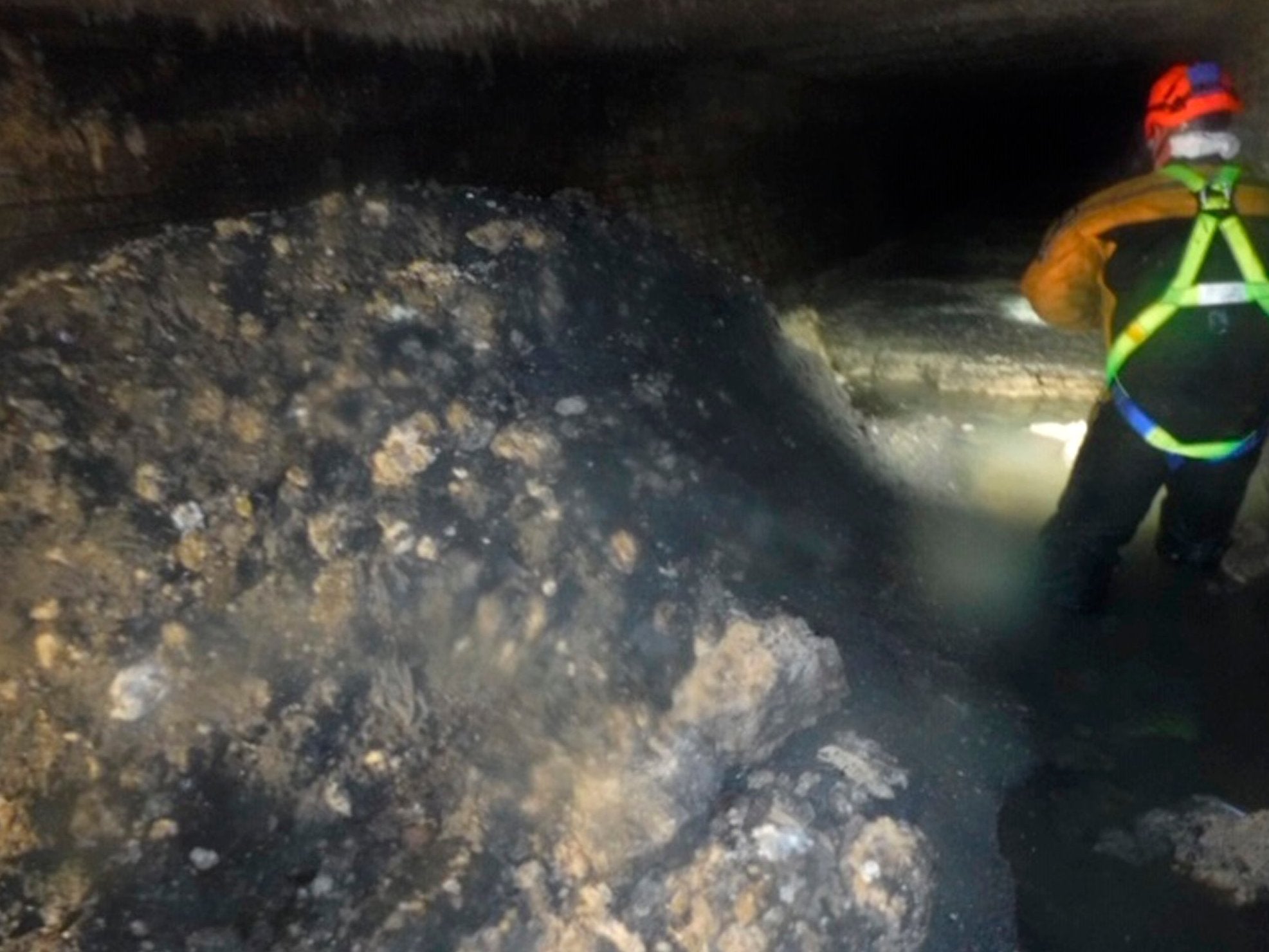Work begins to remove 'monster' 200ft fatberg in Devon
Engineers settling in for eight-week stint with pickaxes and shovels

Your support helps us to tell the story
From reproductive rights to climate change to Big Tech, The Independent is on the ground when the story is developing. Whether it's investigating the financials of Elon Musk's pro-Trump PAC or producing our latest documentary, 'The A Word', which shines a light on the American women fighting for reproductive rights, we know how important it is to parse out the facts from the messaging.
At such a critical moment in US history, we need reporters on the ground. Your donation allows us to keep sending journalists to speak to both sides of the story.
The Independent is trusted by Americans across the entire political spectrum. And unlike many other quality news outlets, we choose not to lock Americans out of our reporting and analysis with paywalls. We believe quality journalism should be available to everyone, paid for by those who can afford it.
Your support makes all the difference.Engineers have been forced to use pickaxes to shift a “monster” 64m fatberg from sewers in Devon in an undertaking that is expected to last eight weeks.
Work has now begun on removal of the putrid blockage in Sidmouth created by oil, fat, and grease from wet wipes and other items that should not be flushed down toilets.
But heavy rain forced workers to suspend their efforts on Wednesday until water levels in the sewer became safe. They must use pickaxes and shovels to dislodge the hardened mass of waste, according to South West Water.
The company’s director of waste water, Andrew Roantree, said: ”The Sidmouth fatberg is the largest discovered in our service history, and [it] will take our sewer team around eight weeks to dissect this monster in exceptionally challenging work conditions.”
Following the discovery of the fatberg in January – the largest seen by the company – bosses urged residents only to flush toilet paper and their own waste, and not wet wipes or other items.
Cooking waste should go in the bin and not the sink, they added.
In 2017, a 250m fatberg was found in sewers beneath Whitechapel in east London.
A chunk of that blockage later went on display at the Museum of London.
Additional reporting by PA
Join our commenting forum
Join thought-provoking conversations, follow other Independent readers and see their replies
Comments